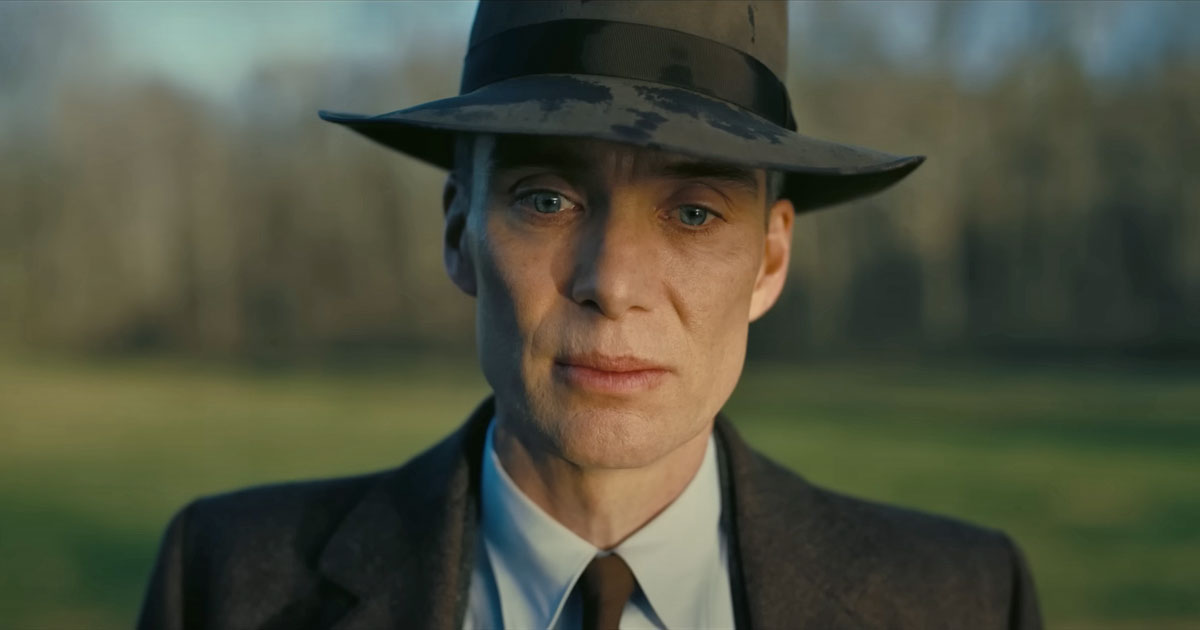
Christopher Nolan’s three-hour biographical drama starring Cillian Murphy as J. Robert Oppenheimer, the famed theoretical physicist who played a pivotal role in developing the first atomic bomb as part of the Manhattan Project in World War II, finally hit cinemas on July 21. Based on the non-fiction novel “American Prometheus” and led by a powerhouse ensemble of Hollywood’s finest talents, “Oppenheimer” dramatizes the U.S. efforts to develop the weapon of mass destruction that devastated Hiroshima and Nagasaki in 1945 while confronting the far-reaching consequences and unfathomable moral dilemmas wrought by its creation.
To honor what could well be the movie event of the year and already a box-office juggernaut that has received worldwide critical acclaim and ignited passionate debate online, here are ten reasons that confirm “Oppenheimer” is every bit the cinematic masterpiece it is being touted as.
1. It’s a morally complex film about a morally complex subject matter
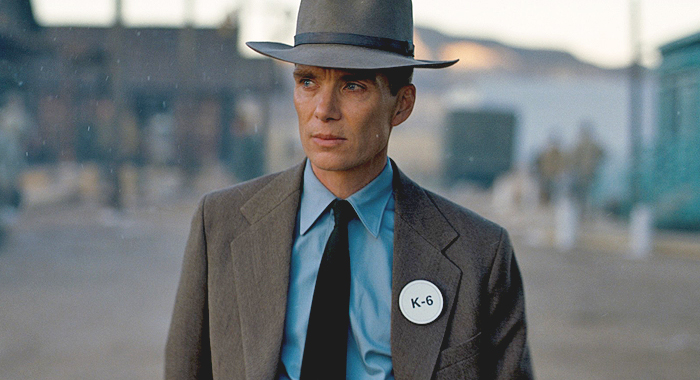
The complicated legacy of a half-man, half-myth who harnessed the power of the atom to become the destroyer of worlds before spending the rest of his life haunted by his own creation is appropriately conveyed in “Oppenheimer”, a film that neither condemns nor fully rehabilitates its infamous subject — offering up instead a balancing act of presenting a full picture of his inner struggles and the terrifying implications of his scientific breakthrough in a way that refuses to draw simplistic lines between good and evil.
In embracing the many layers and contradictions of what he personally considers to be the most important person who ever lived — at different moments in time a left-leaning grad student, a living legend in his field of passion, the most famous scientist in the world, a prophet of nuclear Armageddon, a presumed secret Soviet spy, and a social pariah driven into academic exile — Nolan has given us a cinematic equivalent to a Rorschach Test that allows each viewer to draw their own conclusions.
Even those with a cursory knowledge of the so-called father of the atomic bomb will likely be aware that Oppenheimer single-handedly changed the tides of history through his leadership of the Los Alamos National Laboratory, but the famed Jewish physicist is granted greater pathos on-screen for his support of progressive causes, opposition to the development of the hydrogen bomb, political pragmatism, and humiliating trial by kangaroo court in the 1950s. Nolan’s “Oppenheimer” prompts nuanced moral dilemmas of playing dice with the universe and the unfathomable consequences that arise from the misuse of such power, being better for it.
2. It’s adapted from strong source material
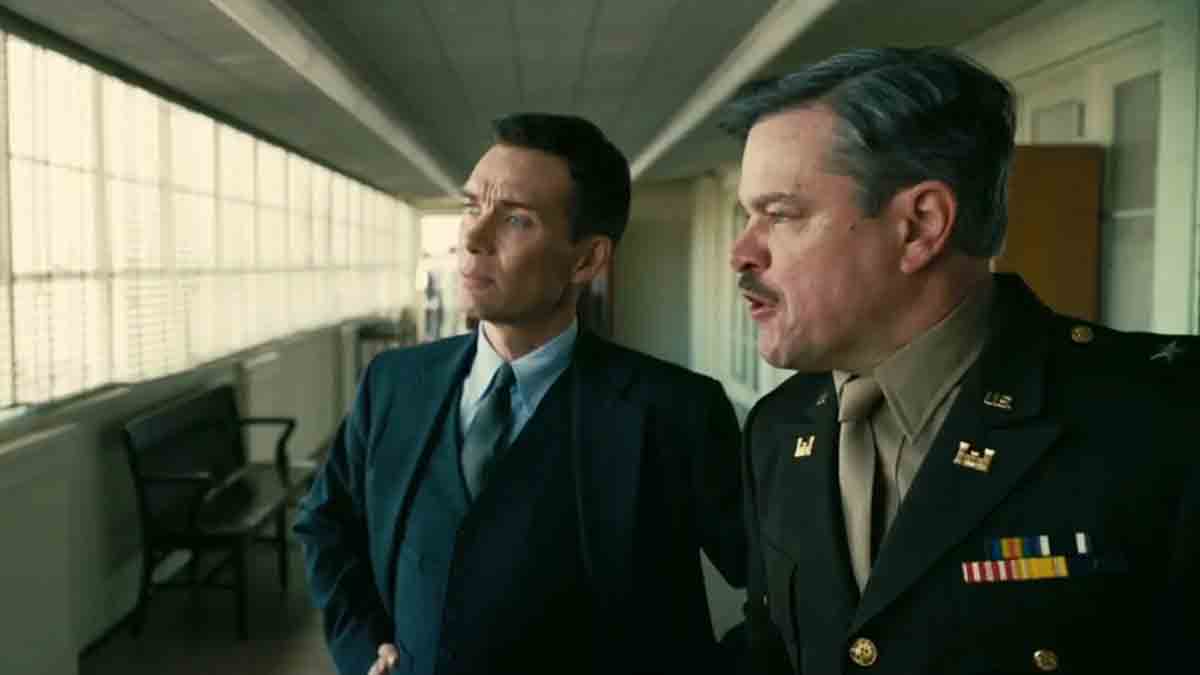
Of all the superlatives one can lay at the feet of Christopher Nolan, one that almost everyone could agree on is that few working directors share his colossal ambition. Long before his budgets started to figure into the triple digits, the Londoner had showcased a knack for intricate puzzle narratives and head-spinning twists that played his audience like a fiddle. However, as his films got steadily bigger, longer, and bolder, Nolan’s outsized ambition as a conceptual storyteller has occasionally exceeded his grasp as a screenwriter, which tends to overcomplicate his films and frequently collapses into self-parody.
Fortunately, the director avoided such pitfalls in faithfully recounting the life of the father of the nuclear bomb, making a three-hour close-quarter drama about government middlemen talking at each other in office buildings and public hearings thoroughly engaging from start to finish. One big reason behind the film’s narrative punch and historical accuracy can be attributed to “American Prometheus: The Triumph and Tragedy Of J Robert Oppenheimer”, the 700-page book upon which it is based.
Authors Kai Bird and Martin J. Sherwin allegedly spent over 25 years carefully researching their Pulitzer Prize-winning biography, which much like the film covers a ton of historical ground, from his early career as a budding physicist at Cambridge, 32-year marriage with Kitty Vissering and key role overseeing the Los Alamos Laboratory during the Manhattan Project to the harassment and public humiliation he suffered during the McCarthy era. Having such a wealth of knowledge and authoritative record of Oppenheimer’s life ensured Nolan’s decade-spanning epic would hold up to close scrutiny and be able to shuffle between different timelines without any missteps.
3. Cillian Murphy’s central performance
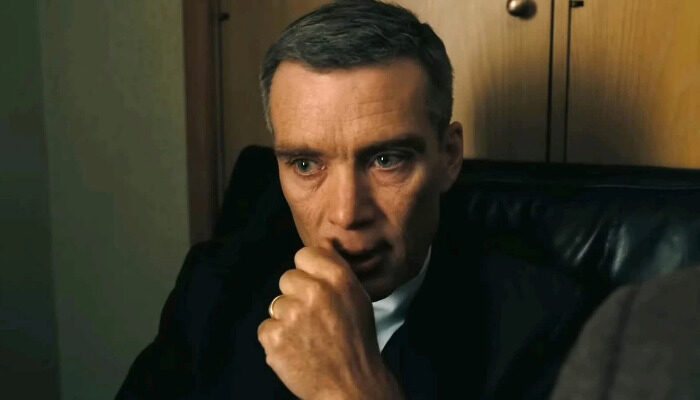
Nolan-heads were made privy to Cillian Murphy’s on-screen talents throughout the Batman trilogy, “Inception” and “Dunkirk”, but after being cast in supporting roles for decades, the Irish-born actor finally landed the top spot on a Nolan call sheet for the first time in six tries as J. Robert Oppenheimer. It’s hard to pinpoint a single scene that stands out, but whenever Murphy occupies the screen as the titular physicist, he sucks up all the oxygen in the room and applies each word with a scalpel’s precision, capturing every bit of the character’s gravitas and inner turmoil. Even in the rush of praise for Nolan’s direction and the rest of the colossal ensemble at his disposal, it’s the “Peaky Blinders” alumni who’s holding the fort here with a volcanic outing that is such a tour de force that it is already being singled out by critics as an early frontrunner in the Best Actor race.
Murphy “captures all the contradictions of this brilliant, tortured, complicated man,” writes Deadline’s Pete Hammond. The Ringer’s Adam Nayman hails his performance as “an impeccable show of technical, physical and behavioral control that buries Oppenheimer’s angst so deeply that he becomes a cipher,” while The Guardian’s Peter Bradshaw sums it up perfectly as an “eerily close lookalike that captures Oppenheimer’s sense of solitude and emotional imprisonment with a million-yard stare.” If nominations come calling, all signs point to Murphy picking up his first statuette sooner rather than later.
4. A strong ensemble cast
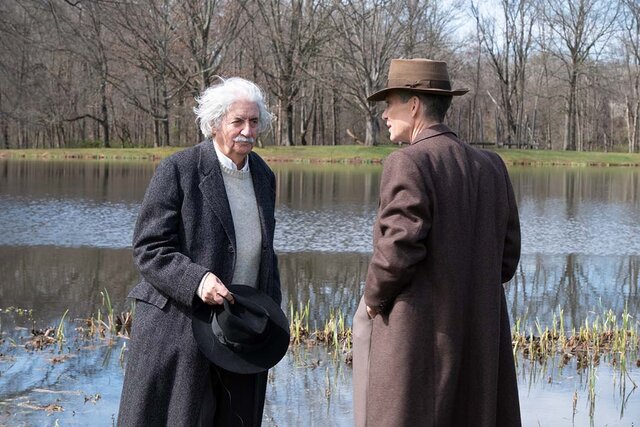
As one of a handful contemporary auteurs with enough stature and enduring mainstream appeal to have blank-check resources, Nolan is able to assemble huge ensemble casts littered with top-shelf names, past Oscar winners, and perennial A-listers — all of which are comfortable checking their egos at the door and taking on uncharacteristically small supporting parts, well aware the director will somehow manage to give everyone a chance to shine.
Featuring such names as Cillian Murphy, Robert Downey Jr., Matt Damon, Emily Blunt, Florence Pugh, Casey Affleck and Gary Oldman, “Oppenheimer” stellar lineup represents the biggest collection of thespian talent Nolan has ever worked with since dipping his toes into big budget-filmmaking. Downey Jr.’s shockingly nuanced turn as Lewis Strauss, the vindictive chairman of the US Atomic Energy Commission who orchestrates a witch hunt against Oppenheimer, is an obvious standout that has earned the lion share of plaudits, but about every other performer in this constellation of matinee idols leaves a mark in brief but memorable roles, making seemingly dull dialogue-heavy scenes about quantum physics and revoked security clearances downright exciting.
5. It provides a valuable history lesson that continues to be relevant in today’s world
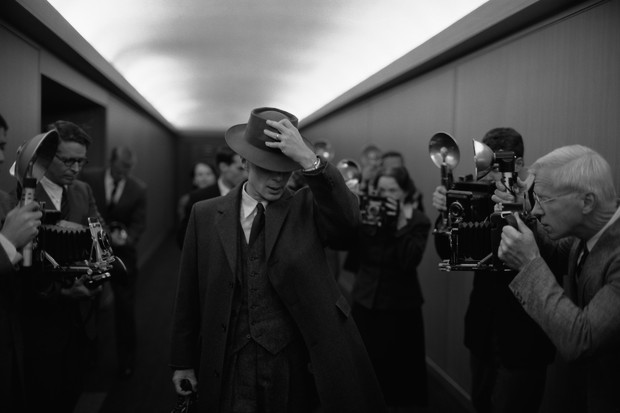
Some movies speak to their moment, some reflect on the past, and others gain prescience as time passes on. “Oppenheimer” is the rare kind of adult-oriented Hollywood crowd puller we only get every once in a while that somehow manages to check all three boxes emphatically.
The looming threat of nuclear annihilation and its catastrophic aftershocks have continued to cloud above everyone’s head since the advent of the nuclear bomb during the waning days of World War II. For just as long, countless works of fiction across film, music and literature have turned those fears into high-stakes drama while pondering on the long-lasting implications wrought by the scientific discoveries of the Manhattan Project.
Although Nolan had been tinkering with the possibility of developing an Oppenheimer biopic for years before our current state of affairs came to be, his new film holds striking relevance in an era where the specter of nuclear warfare looms larger now than at any point in the past fifty years. In a recent interview, the director noted that, whatever world it was coming out into, his intention with the film was always to reiterate the unique and extraordinary danger of nuclear weapons, a threat he acknowledges has been amplified by escalating tensions between major global powers to the extent that it’s being talked about in the news.